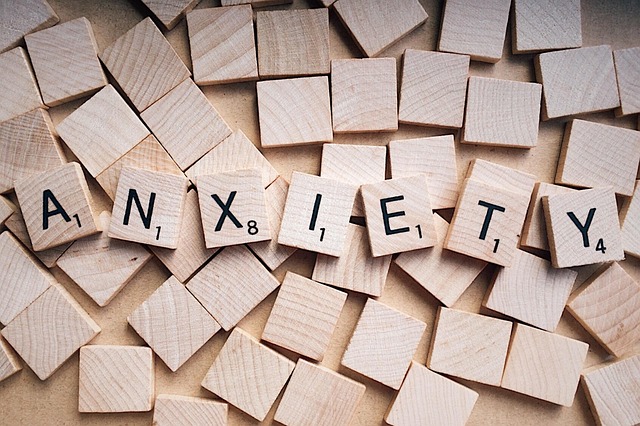TL;DR:
This text appears to be a structured description or an outline for content related to Superior Postpartum Depression Therapy. It emphasizes the importance of addressing postpartum depression, suggesting a comprehensive approach that likely involves therapy. The keywords "superior" might imply a high-quality, effective, or cutting-edge treatment method.
The content hints at various aspects:
– Historical or cultural perspectives on postpartum experiences.
– Potential challenges and symptoms of postpartum depression.
– The need for specialized support and understanding.
– A focus on therapy as a key component of recovery.
While the text doesn't provide direct answers, it sets a framework for creating informative content aimed at helping individuals affected by postpartum depression and their loved ones find suitable therapeutic solutions.
In today’s fast-paced world, mental health crises are all too common, with postpartum depression (PPD) affecting a significant number of new mothers. This article delves into the critical support services available through hotline interventions, addressing PPD as a prevalent yet overlooked issue. We explore the vital role of these hotlines in providing immediate assistance and guiding individuals towards long-term therapy. Additionally, we offer valuable resources for accessing superior postpartum depression therapy, empowering individuals to take the first step towards healing and well-being.
- Understanding Postpartum Depression: A Common Yet Overlooked Crisis
- The Vital Role of Hotline Support Services in Mental Health Crises
- Identifying the Signs: Recognizing When Someone Needs Immediate Assistance
- How Hotlines Provide Effective Short-Term Support and Guide to Long-Term Therapy
- Accessing Superior Postpartum Depression Therapy: Resources and Next Steps
Understanding Postpartum Depression: A Common Yet Overlooked Crisis

Postpartum depression (PPD) is a complex mental health crisis often overlooked within the broader discussion of maternal well-being. It affects new mothers worldwide, impacting their emotional state and daily functioning during what should be a joyful period. This hidden crisis manifests as intense sadness, anxiety, exhaustion, and feelings of hopelessness, hindering a mother’s ability to care for herself and her newborn. Recognizing PPD is crucial, as early intervention can significantly improve outcomes through tailored therapy and support services.
Superior postpartum depression therapy involves a multifaceted approach. Healthcare providers can play a pivotal role in prevention by promoting cultural sensitivity in mental healthcare practice, ensuring every mother feels comfortable seeking help. Burnout prevention strategies are essential for professionals interacting with new mothers, allowing them to provide sustained care without compromising their well-being. Additionally, social skills training can empower both parents to navigate the challenges of parenthood and foster healthy connections within the family unit.
The Vital Role of Hotline Support Services in Mental Health Crises

In moments of intense mental distress, hotline support services play a pivotal role, offering immediate and accessible Crisis Intervention Guidance. These lifelines are often the first point of contact for individuals grappling with various mental health challenges, including Superior Postpartum Depression Therapy. Trained professionals provide not just a listening ear but also valuable Communication Strategies to help individuals express their feelings effectively.
Hotline support services foster self-awareness through tailored Self-Awareness Exercises, enabling people to navigate their emotions and thoughts during crises. By providing a safe space for vulnerable individuals to share their struggles, these hotlines break down barriers to treatment, ensuring that those in need receive the prompt assistance they require to stabilize and seek long-term mental health solutions.
Identifying the Signs: Recognizing When Someone Needs Immediate Assistance

Recognizing the signs of a mental health crisis is crucial in ensuring timely assistance and support. While every individual’s experience is unique, there are common indicators that may signal someone is struggling. Superior postpartum depression therapy often begins with identifying these subtle or overt signals, such as persistent feelings of sadness, extreme mood swings, or significant changes in appetite and sleep patterns. These symptoms can be early warning signs of various mental health conditions, including postpartum depression, anxiety disorders, or even more severe issues like psychosis.
Empathy building strategies play a vital role in this process, fostering connections that encourage individuals to open up about their struggles. By implementing effective stress management techniques and promoting burnout prevention, support services can create a safe environment for vulnerable persons to seek help without stigma. Early intervention is key; prompt assistance through crisis hotline services can be life-saving, guiding individuals toward recovery and improved overall well-being.
How Hotlines Provide Effective Short-Term Support and Guide to Long-Term Therapy

Hotline support services play a pivotal role in providing immediate assistance during mental health crises, offering a safe and confidential space for individuals to express their distress. Trained professionals on these hotlines are equipped with the knowledge and skills to assess the situation, provide emotional support, and offer practical guidance tailored to each caller’s unique needs. This short-term intervention is crucial in stabilizing individuals and preventing further deterioration.
Beyond immediate aid, hotlines serve as a vital gateway to long-term therapy. They often facilitate connections with mental health professionals, ensuring continuity of care. By offering resources and education on managing conditions like postpartum depression, these services empower individuals to take the first step towards recovery. Additionally, they promote resilience building and communication strategies, enabling people to navigate their mental health journeys effectively while encouraging them to seek specialized therapy for superior postpartum depression treatment.
Accessing Superior Postpartum Depression Therapy: Resources and Next Steps

Accessing Superior Postpartum Depression Therapy: Resources and Next Steps
Postpartum depression (PPD) requires immediate attention and specialized care. For many, seeking therapy is a crucial step in navigating this mental health crisis. The journey to healing begins with recognizing the signs and symptoms and taking that first step towards reaching out for help. Various resources are available, offering a range of therapeutic approaches tailored to address PPD. Cognitive-behavioral therapy (CBT), interpersonal therapy (IPT), and psychodynamic therapy are among the evidence-based methods proven effective in treating PPD.
To ensure superior postpartum depression therapy, it’s essential to consider qualified mental health professionals with expertise in this area. Healthcare providers should focus on burnout prevention strategies to maintain their well-being while offering support to new mothers. Additionally, a thorough risk assessment for mental health professionals is vital to guarantee a safe and supportive therapeutic environment. Local community clinics, online therapy platforms, and dedicated postpartum depression support groups are valuable resources where individuals can find guidance and share experiences, fostering a sense of community and emotional healing processes.
In light of the above discussions, it’s clear that hotline support services play a crucial role in addressing mental health crises, particularly postpartum depression. By providing immediate assistance and effective short-term support, these hotlines guide individuals towards superior postpartum depression therapy and long-term recovery. Remember that recognizing signs early is key to preventing escalation, and leveraging available resources can make all the difference in fostering better mental well-being.














